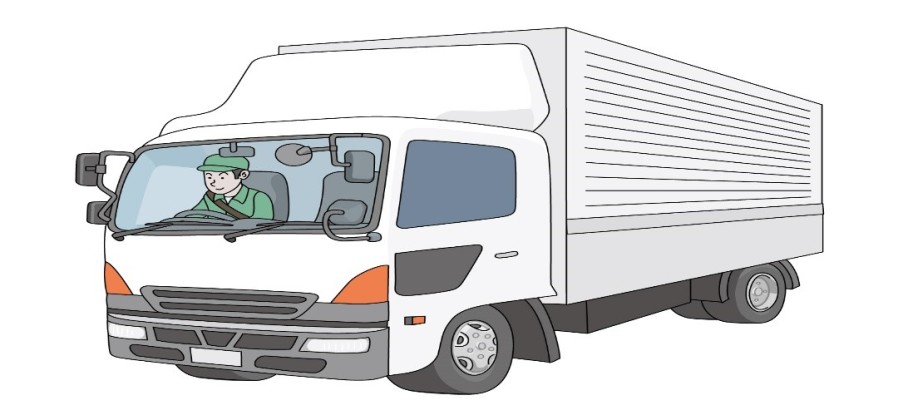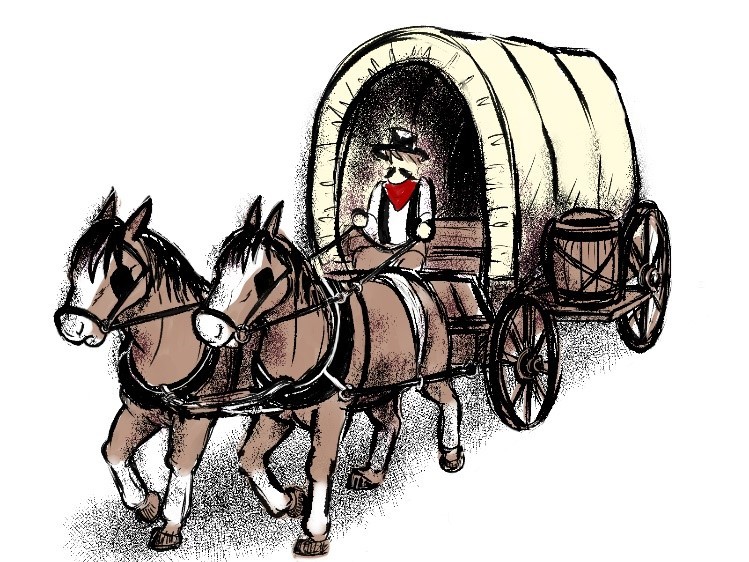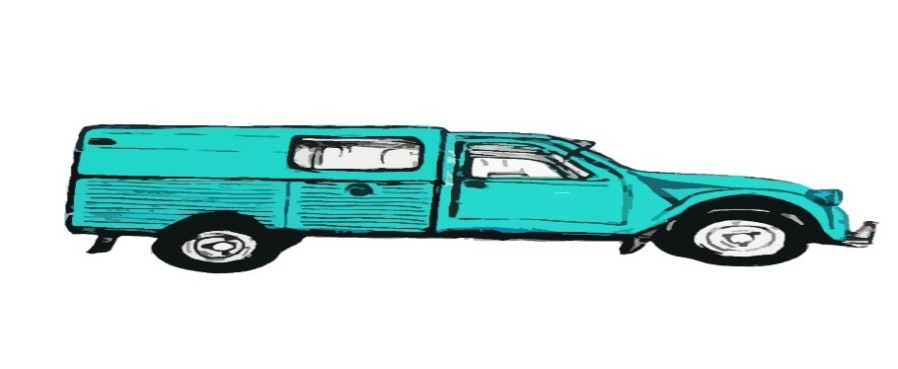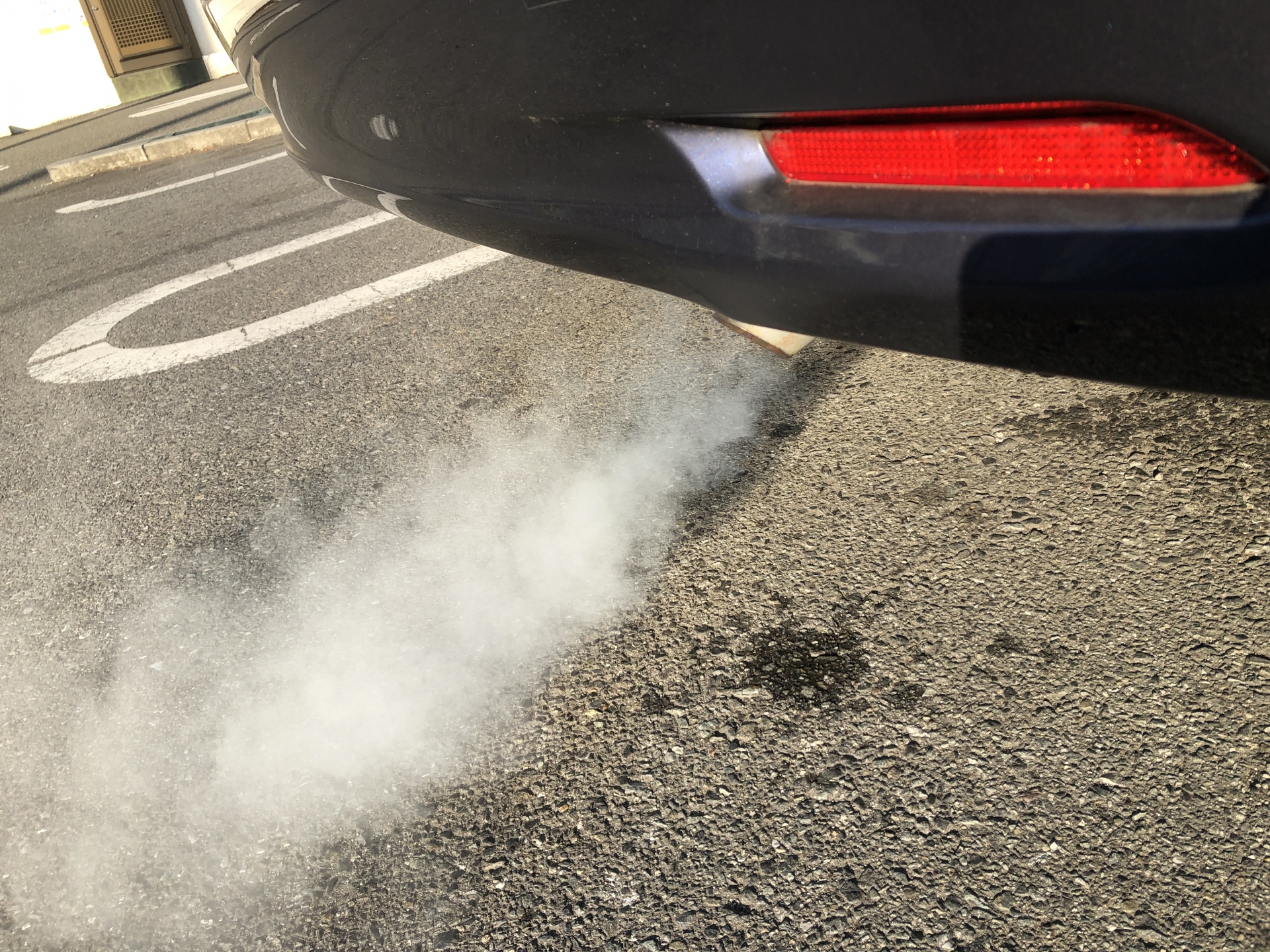BLOG
2019.08.30 update
Origin of the Truck
“TRUCK” is now an important machine of transportation that supports modern society. They have become an indispensable part of life, but when we first looked at how trucks have been developed, they have an interesting origin.

The Beginning of Truck =Car Using Animals and Winds=
It is said that it was the Mesopotamian civilization around 3,000 BC that invented the first wheeled car. Also, the carts that horse, donkeys, cattle can be pulled on were thought to have used in the Sumerian civilization around 2,500 BC.
A typical example of a car that uses a power source other than animals is a sailing car made in 1599 by Dutch military engineer, Sion Stevin. This vehicle uses the power of the wind like a sailing ship and it ran on the coast at the speed of 24 km/h with 28 passengers.

The Beginning of Truck with Engine
It was in 1886 when the gasoline engine was invented for the first time. Carl Benz, in Germany, developed the one and installed it in a three wheeled vehicle. Daimler which is famous for Mercedes-Benz was manufactured the “Truck” for the first time in 1896. Meanwhile, the world’s first trailer was developed in the USA in 1914 by August C. Full-Half. It was developed for transporting boats, but it is suitable for goods. This is the origin of modern trailers.
The Beginning of Truck in Japan
It is said “TOKYO ISHIKAWA ZOSENJO” (the predecessor of ISUZU) made the first truck in Japan. In 1923, they ordered truck drawings and 2 sample trucks from a British company. Based on these 2 prototype trucks were completed in March 1924, and a 1,000 km driving test was conducted to check the quality for military vehicle.
After that, production of standard cars from the Ministry of Commerce and Industry was started in order to improve the level of domestic automobiles. The car was jointly operated by “ISHIKAWAJIMA JIDOSYA SEIZOJO”, “TOKYO GAS DENKI KOGYO” and “DATTO JIDOSYA SEIZO”. As a result, TX40 Type tucks and BX40 type buses were manufactured, completed in 1932, and developed into ISUZU 5-6-ton trucks after the war, which vehicles were named “ISUZU”. In this way, the first trucks in Japan were made for military use originally.
Then, how about the origin of the truck for private sector?
It was after World War 2 that truck for private sector was made. After the end of the war, automobile production was banned by GHQ. But in October 1945, permission was granted for trucks only. “DIESEL JIDOSYA KOGYO” (predecessor of ISUZU) improved the military trucks for civilian use and started production of 5-ton trucks.
In the following years, a truck installed with the diesel engine was released and making a great success in post war reconstruction. After that, the maker continued to develop new trucks.

Since then, trucks have been still evolving day by day, such as the development of high-powered engines capable for high speed driving and the development of trucks with environmentally friendly functions.
We have wide variety of stocks, so please visit to our WEBSITE and check our latest stock!
Current Stock list : https://yamada-co.jp/en/stock/
---------------------------------------------------------------
Japanese Used Trucks & Machinery Exporter
Yamada Sharyo Co., Ltd.
Website / Contact Us / About Us
Search Trucks / Search Machinery
---------------------------------------------------------------
- LATEST ARTICLES
-
-

2022.04.05
Mitsubishi Fuso Truck and Bus Corporation Introduces New "Euro 4" Compliant Lineup to Indonesian Market
-

2022.03.22
We Opened Facebook Page and Instagram!
-

2022.03.08
Recent Best Sell!
-

2022.02.22
Japanese made excavator brand ‘YANMAR’
-

2022.01.05
Special Announcement ~AUCTION & EXPORT SERVICE STARTS!~
-
- CATEGORY
- ARCHIVES
-
- 2022-04(1)
- 2022-02(1)
- 2022-03(2)
- 2022-01(1)
- 2021-01(2)
- 2021-06(2)
- 2021-03(1)
- 2021-09(1)
- 2021-07(2)
- 2021-08(1)
- 2021-12(4)
- 2021-11(1)
- 2021-02(2)
- 2021-05(3)
- 2021-10(2)
- 2021-04(3)
- 2020-04(8)
- 2020-02(4)
- 2020-01(4)
- 2020-07(4)
- 2020-05(3)
- 2020-12(2)
- 2020-08(3)
- 2020-10(3)
- 2020-06(6)
- 2020-09(3)
- 2020-03(5)
- 2020-11(2)
- 2019-01(3)
- 2019-12(4)
- 2019-08(3)
- 2019-11(5)
- 2019-04(7)
- 2019-02(4)
- 2019-05(4)
- 2019-06(4)
- 2019-07(3)
- 2019-09(4)
- 2019-10(4)
- 2019-03(3)
- 2018-02(4)
- 2018-05(4)
- 2018-06(7)
- 2018-10(4)
- 2018-07(4)
- 2018-11(5)
- 2018-09(4)
- 2018-08(4)
- 2018-03(5)
- 2018-12(3)
- 2018-04(6)
- 2018-01(4)
- 2017-12(8)








